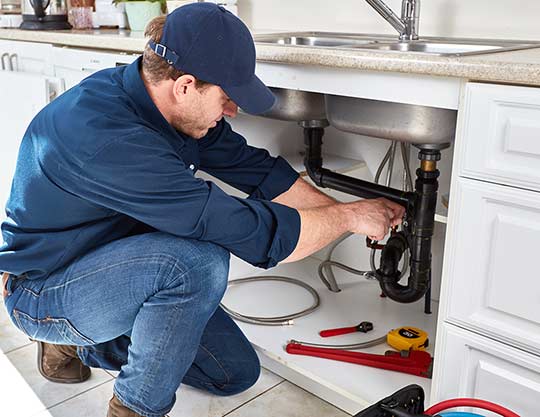
What are some actions to take during a plumbing emergency? Bad things happen, and they happen despite your best efforts to prevent them. This is the inescapable reality of life. But just because bad things happen regardless of what you do, doesn’t mean you have to be at the mercy of those events when they happen. Preparing before an emergency happens is the best way to minimize its effects.
You can do two things to control how badly you will be affected by any unexpected events in your life. First, before the events happen, you can take preventive actions that reduce or even eliminate the possibility of them happening. Secondly, you can go ahead to map a plan of action in case the event somehow happens.
This second step is known as emergency preparedness, which is a vital factor for reducing the impact of any emergency on your life. Preparing for an emergency means accepting the possibility that it can happen and subsequently walking yourself through the steps you will take if it does. Emergency preparedness is valid for all spheres of life, including home maintenance.
Plumbing is one of the most common areas of your home where emergencies can happen, as Avalon Management points out. Your home’s plumbing system is vast, versatile, and always in use. Because of how often you and your family use the plumbing, major problems can happen unexpectedly. What are the most common plumbing emergencies, and what can you do about them?
Common plumbing emergencies and what to do about them
A crisis in the home is anything that threatens your ability to live in that home. Plumbing emergencies can be divided into gas leaks and water plumbing emergencies. Water plumbing emergencies include sewer backups, clogged toilets, frozen pipes, burst pipes, etc. Here is how to handle plumbing emergencies in your home:
Gas leaks
A gas leak is the most life-threatening plumbing emergency you can have in the home. Gas is used to power the home water heater; the gas line can sometimes leak. You must turn off the gas if you ever smell it inside your house. Here are the steps to follow if you find a gas leak in your home.
Turn off the gas if you know how; this is the quickest solution and can save you a lot of money. Call your plumber or the company if you don’t know how to turn the gas off. After the gas is turned off, your plumber will fix the leak, and the gas company will turn it back on when it is safe.
Backed-up sewer system
This is the worst water plumbing emergency you can have in your home. A sewer backup happens when the content of your main sewer line finds its way into your house instead of onwards to the city sewer lines. A sewer backup will cause raw sewage to flood into your home.
Go outside and check your home’s two-way cleanout to see if there is water. If there is a cap on it, it might push up because of the pressure; loosen this cap. Be careful when you do this because the cap can pop right up because of the force.
Once the lid is open, sewage will flow from the sewer into your yard, but it will stop flowing into the house. Call the local plumber afterward. If you can’t find the cleanout, call an emergency plumber at once.
Clogged toilets
You cannot flush your toilet because the toilet drain is blocked. In severe cases, a clogged toilet may overflow and spill the unpleasant content inside the toilet bowl into your home. In milder cases, the water level may refuse to go down.
If you can see the drain opening and the obstruction is visible, try to extract it using a clothes hanger. You may also use a plunger or a manual drain snake to try and open the drain. Contact your local plumber if these methods don’t work.
Burst pipes
The most common cause of this problem is cold weather. During winter, water inside the pipes in your home may freeze and weaken or rupture the pipes. Subsequently, after the pipes have thawed, the damaged pipe may flood your home with water.
If you have a burst pipe emergency in your home, the first thing is to cut off the water. You do this by turning off the main water shut-off valve. This valve is often found right after the water meter or in a box outside the house.
To reduce the risk of water damage to the house, every household member should know where the shut-off valve is and how to use it. If the water heater is leaking, you can shut the water-heater valve instead.

